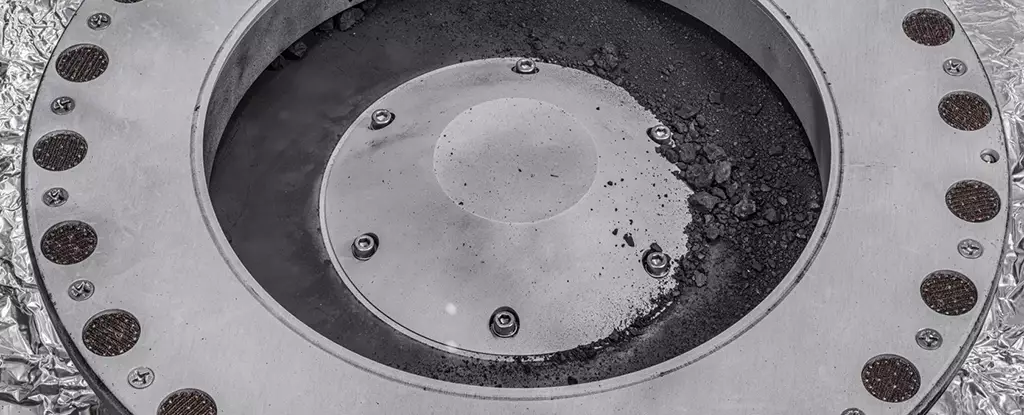

NASA scientists are embarking on a groundbreaking analysis of the fragments brought back from the Bennu asteroid, and the early indications are pointing towards a stunning discovery. Based on the detection of phosphate crust on the asteroid, scientists believe that the material it contains originated from an ancient ocean world. The presence of a calcium and magnesium-rich phosphate mineral, which has never been seen on meteorites before, is adding weight to this hypothesis. Interestingly, the mineral’s chemistry bears a striking resemblance to the composition of vapor venting from beneath the icy crust of Saturn’s moon, Enceladus. Phosphate is also a crucial building block of life, bolstering the idea that asteroids may have brought the ingredients necessary for life to Earth during its early turbulent history.
According to scientists, Bennu was once part of a world that likely resembled Enceladus but was approximately half its size. However, as the Solar System gradually formed, this hypothetical world was destroyed by a collision with another object, giving rise to thousands of asteroids. The investigations conducted on the Bennu fragments hold immense significance as they provide a rare opportunity to study samples of an asteroid. In fact, the OSIRIS-REx mission that retrieved the Bennu samples is only the third of its kind in history. Spanning a period of seven years and a distance of 6.21 billion kilometers (3.86 billion miles), this mission was a monumental achievement. The sample capsule safely returned to Earth in September 2023, paving the way for extensive research and analysis.
The scientific community is abuzz with excitement as teams around the world delve into the examination of the asteroid fragments. At the University of Arizona, researchers are carefully sifting through thousands of tiny particles, with the largest measuring 3.5 centimeters (1.4 inches) across. Various techniques are being employed to unravel the mysteries contained within these fragments, including X-ray diffraction. This method involves analyzing patterns of electromagnetic radiation to gain insights into the nature of the material. Scientists are particularly interested in understanding the origins of Bennu and its connection to the formation of the Solar System, which took place approximately 4.5 billion years ago. Unraveling the secrets of Bennu’s past will undoubtedly shed light on our own origins and offer profound insights into the history of our planet.
While we are still in the early stages of this research, the findings made thus far are groundbreaking and signify the beginning of a new era of exploration. Scientists anticipate that there will be many more discoveries and revelations in the future, providing us with a deeper understanding of Bennu and its significance. One potential breakthrough could be the confirmation of the type of planetesimal that gave rise to Bennu. As our understanding of the asteroid and its composition deepens, scientists will present their findings at the 55th Lunar and Planetary Science Conference held in Texas. This conference will be a platform for sharing knowledge and advancing our understanding of the Bennu asteroid, an ancient ocean world that holds extraordinary secrets waiting to be unlocked.
Cells form the foundation of all living organisms, and gaining insights into their inner workings…
Mosquitoes are not just an irritating nuisance; they are deadly vectors that transmit a range…
In the quest for sustainable living, consumers often hold fast to the belief that glass…
For over a century, the astral mystery surrounding Barnard's Star, a unique red dwarf just…
In the realm of catalysis, particularly in the context of oxygen evolution reactions (OER), understanding…
Recent research has illuminated a groundbreaking connection between blood donation frequency and the health of…
This website uses cookies.